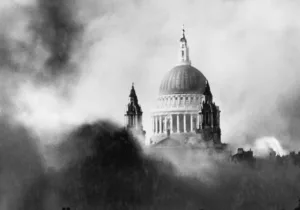The newly launched Freedom Conservatism Declaration, which I signed, extols liberty, the pursuit of happiness, free markets, fiscal sustainability, laws over men, orderly immigration, deference to families and communities, racial equality, a foreign policy premised on national interest with liberty, and freedom of conscience.
God and religion are not explicitly mentioned. But the statement implicitly assumes a largely biblical perspective about human dignity, the limits of government, private property, equality before the law, the primacy of conscience, protection for families, and statecraft premised on providential realism.
Before signing it, I briefly paused, wondering about the lack of specific mention of God. As a Protestant Christian, should I expect that any declaration of political principles must cite Him?
The declaration models itself on William Buckley’s 1960 Sharon Statement, which cited “transcendent values” realized in “the individual’s use of his God-given free will.” Although not citing God, the newer declaration’s principles are clearly the legacy of a Christian or at least biblical anthropology. Its signers are from diverse religious backgrounds. That they could affirm these principles, even if not specifying the source, seems a worthy initiative. “Whoever is not against us is for us,” as the scriptures say.
Principles about democracy, limited government, private property, and free enterprise, with free speech and conscience rights, including religious freedom, largely originated in Christian-influenced and Hebraic cultures. But they have been universalized. Many of these principles are in the Universal Declaration of Human Rights, ratified by the United Nations in 1948, and whose 75th anniversary is this year. People around the world of different faiths and no faith affirm these principles, without specifically acknowledging the spiritual source. We can rightly give thanks for the wide affirmation of these principles (amid highly uneven fidelity) without bewailing the absence of specific credit. “The important thing is that in every way, whether from false motives or true, Christ is preached. And because of this I rejoice,” St. Paul remarked.
Of course, the Freedom Conservative Declaration, no more than the Universal Declaration of Human Rights, certainly is not the Gospel. But when people outside the faith embrace what is true and good, pointing consciously or not to the divine order, we who are religious can give thanks. Divine Providence employs all kinds of people, often without their realization, in ways beyond our imagination. That person who is only half right, or two thirds right, should be encouraged in his or her positive direction and not condemned for the absence of complete correctness.
There is also the stickiness of including specific theology in political principles. William Buckley of course was a devout Catholic, but his Sharon Statement’s reference to the deity was very sparing. Last year’s National Conservatism’s Statement of Principles ominously declared that both public and private institutions in majority Christian countries should “honor” Christianity, with non-Christian religion protected in its own sphere, and individuals guarded from religious coercion in “their private lives and in their homes.” (Here’s my critique.) In other words, non-Christians are second class citizens whose freedom is largely confined to their homes and private religious institutions. Buckley would never have accepted such a vision. And the Freedom Conservatism Declaration is infinitely preferable, and more Christian in spirit, than the National Conservatism’s statement implicit call for an at least vaguely Christian coercive confessional state.
Buckley’s Sharon Statement cited “eternal truths,” but did not conflate all of its political prudential claims with transcendent revelation. We who are conservative can strive, with our collective judgment and historical experience, to root our political perspective in ultimate truth claims about God. But with humility we must not conflate these judgements with divine will or inflexible dogma. And we understand that all political principles and institutions are under divine judgment.
In The Spirit of Democratic Capitalism of 1982, Catholic thinker Michael Novak wrote that “certain cognitive enclaves” may have their “sacred canopy” of shared understandings. But “outside this temporary shelter…there are within pluralism, by design, many such sacred canopies, and some things one group takes to be sacred are mocked in another,” which requires avoiding “social land mines.” A “genuinely pluralistic society” lacks a single sacred canopy and at its “spiritual core, there is an empty shrine,” that’s “left empty in the knowledge that no one word, image, or symbol is worthy of what all seek there. Its emptiness, therefore, represents the transcendence which is approached by free consciences from a virtually infinite number of directions.”
For Novak, such a vision reminds individuals that the “common good transcends their own vision of the good, however passionately held,” and in “the light of such transcendence…progress is inspired, and reforms are called for.” Novak affirmed divine references in public life but as undefined “pointers” whose “function is to protect the liberty of conscience of all, by using a symbol which transcends the power of the state and any other earthly power.”
The Freedom Conservatism Declaration could easily have included such “pointers,” in sync with American civil religion. I would have gladly signed it. But the absence of these pointers did not rob the declaration of its purpose or import. It points to liberty. And believers in traditional religion, including fellow Christians under our particular “canopy,” know liberty’s Author without specific citation.







 Sponsor a student for Christianity & National Security 2024
Sponsor a student for Christianity & National Security 2024